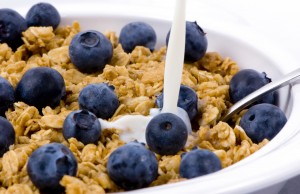What is Celiac Disease?
Celiac disease (a.k.a. gluten enteropathy) is a disease in which the immune system produces an inflammatory response to the food ingredient gluten, damaging the absorptive surface of the small intestine in the process. This results in bloating, pain and diarrhea in gluten-allergic individuals, and in the long run, increased risk of osteoporosis and colon cancer.
What is gluten? Gluten is a protein that is naturally part of the grains wheat, barley, rye, spelt, kamut and triticale. As a nutritionist it concerns me that despite the increasing number of cases of Celiac disease in all age groups, the media has neglected to mention how healthy eating for Celiacs is vital to their recovery.
Myth #1: A little bit of gluten is O.K.
Reality: even a few crumbs of wheat toast from a toaster can illicit symptoms in a gluten-allergic person. The body’s immune system is designed to recognize tiny foreign particles of different sorts and it will launch an attack on something this size. Every time the immune system finds gluten particles in the system, it launches an inflammatory response. This spells tissue injury and pain for the gluten-allergic. Healing will be delayed and symptoms will return.
Myth #2: As long as I eat 100% gluten-free I can be healthy again.
Reality: There are a lot of processed foods on the market intended to support Celiacs with a wider range of foods to eat that are actually no better than junk food! Just because your pancake mix or cereal is gluten-free it is not necessarily health-promoting. Think of all the sugar, the refined flours (as opposed to whole grain flour) and additives needed to get that product to bake and taste like a wheat-based recipe. This is why it’s tough to make a gluten-free cookie or bread fat-free. It’s essential that nutrient-dense, minimally processed foods form the basis of the Celiac diet in order for the small intestine to recover its absorption capabilities completely.
Myth #3: Nutritional supplements are unnecessary for recovering from Celiac disease.
Reality: In Celiac disease, large areas of the absorptive surface of the small intestine become damaged to the point where nutrients cannot be absorbed. The body becomes malnourished, and consequently the person suffers from the symptoms of numerous nutritional deficiencies. Common ones include vitamin B12, calcium and iron. It is my observation that high quality, well-chosen nutritional supplements can speed the rate of recovery from active Celiac disease.
Do you have Celiac Disease? If so do you use nutritional supplements?
Read more on the subject of quality supplementation
